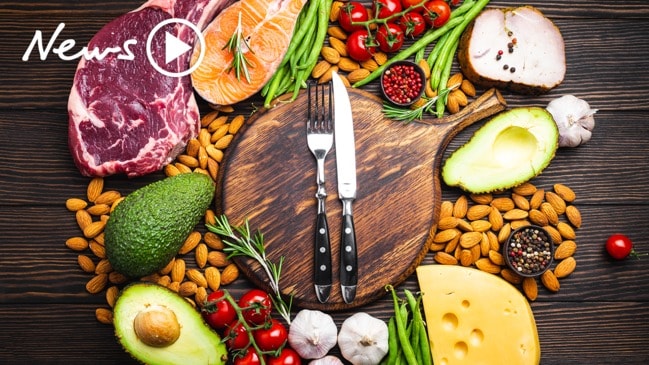The Keto diet involves cutting most carbs. Image: Getty.Source:BodyAndSoul
Low carb diets are nothing new. First there was Atkins, then South Beach, and more recently, the Paleo diet. Fast forward to 2019, and the ketogenic diet is the latest and greatest low-carb diet taking the world by storm.
Instagram celebs, fitness bloggers, your next-door neighbour or even your hairdresser – you’re sure to have heard someone telling you just how amazing the keto diet is. But the problem is, these people are usually not trained nutrition professionals – rather, they’re just the average Joe throwing in their own two cents.
Before we go any further, I want to make one thing clear: the ketogenic diet has proven to be successful in the treatment of epilepsy, especially for young children, and I’m not disputing that by any means. I’m simply encouraging the general population to think about these things before their next keto shopping haul…
Contents
1. Gut health
Wholegrain bread, rolled oats, fruit, legumes – these are all no-go on the ketogenic diet. But it’s not just their carbs you’re cutting out, it’s the oodles of fibre these super-healthy foods contain. That shouldn’t be considered lightly, as fibre is essential for gut and heart health, and it can protect against chronic diseases, too.
2. Heart health
The ketogenic diet is super low in carbs and moderate in protein, meaning that a large percentage of your daily energy intake comes from fat. Now, I’m not against fat by any stretch of the imagination – indeed, healthy fats from foods like olive oil, avocado, nuts and seeds support optimal brain and heart health.
My word of warning comes when keto-goers shovel spoonfuls of butter in their coffee, cook everything they eat in coconut oil or down bacon like it’s going out of fashion – because these foods are rich in harmful saturated fat, which is bad news for your ticker.
What is the Ketogenic diet?

3. Bone health
Another key food that has no place on a keto menu is dairy, because it contains a sugar called ‘lactose’ (aka carbs). Once dairy is wiped out, it’s rather hard to get enough calcium without careful planning – and that could be detrimental to your bone health and quality of life in the long run.
4. Energising iron
If you’re wondering why iron is at risk on a meat-based diet, hear me out. Many grain foods provide a considerable amount of iron, because wholegrains naturally contain iron in their inner layer called the ‘germ’. Another reason is that some grain products can have iron added to them during manufacturing. So, once you cut grains out, your iron status could suffer, which can lead to unpleasant symptoms like tiredness and lethargy. It can even compromise your immune system.
5. Disease risk
You might be surprised to learn that many non-keto friendly foods are associated with a whole lot of health benefits – so by cutting them out, you forgo many of their perks. Fruit, for example, is brimming with a range of antioxidants that help to fight damage to your body’s cells. Another example is grain foods, which are associated with reduced risk of heart disease, diabetes and some cancers. Same goes for legumes, too.
[“source=bodyandsoul”]


